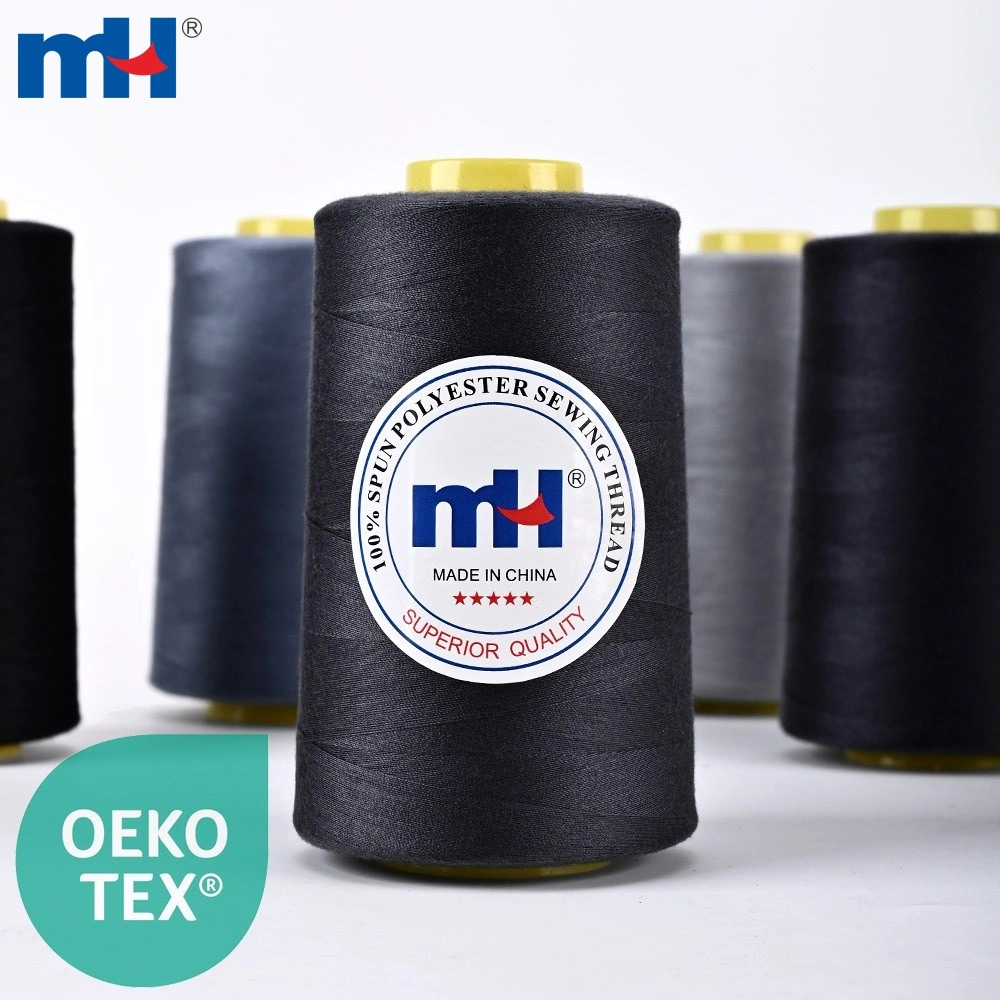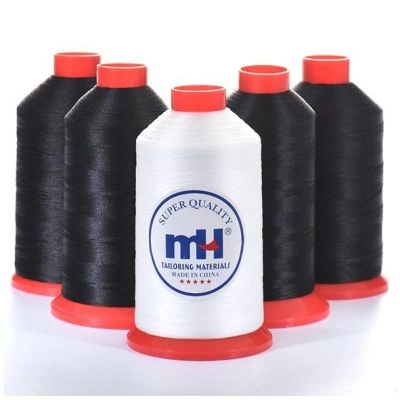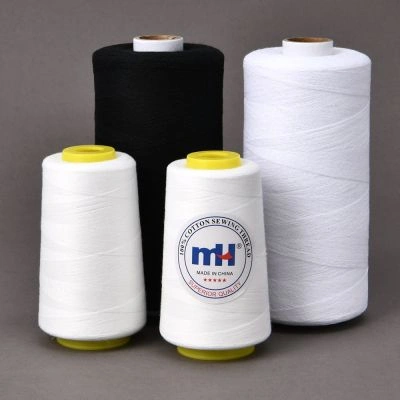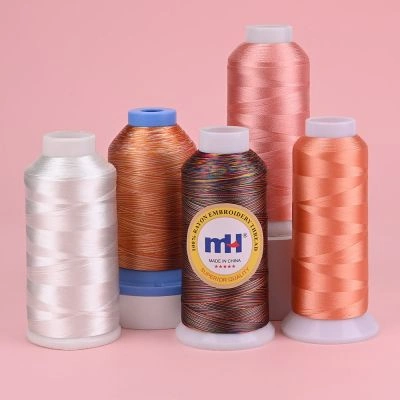What Thread Is UV-Resistant? A Guide by MH
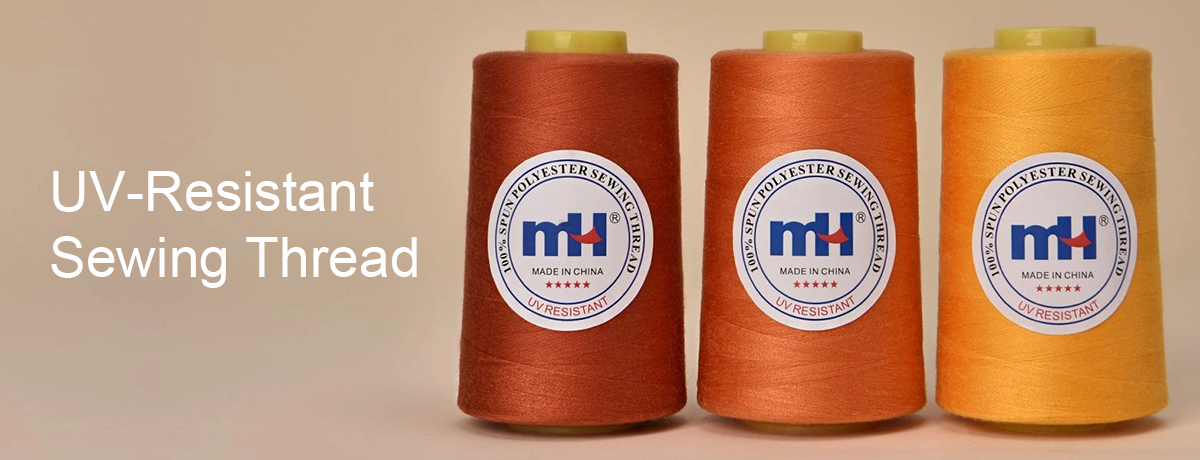
When it comes to outdoor applications like boat covers, awnings, and outdoor fabric, the type of thread you choose is just as important as the material itself. Exposure to sun and UV rays can wreak havoc on stitching, leading to weakened structures and costly repairs. This guide by MH explores the essentials of UV-resistant thread and provides practical insights for outdoor textile projects.
What Is the Best Thread for Sun Exposure?
Threads exposed to prolonged sunlight must withstand extreme UV radiation. Not all threads are built to handle this. Here’s an overview of the most common thread types and how they fare under the sun:
1. Polyester Thread
Polyester thread is a popular choice for outdoor use and sun exposure due to its natural UV resistance. Compared to other threads, polyester holds up exceptionally well in prolonged sunlight, resisting degradation and maintaining strength.
-
Durability: Polyester fibers resist weathering, moisture, and chemicals.
-
Applications: Often used in boat covers, outdoor furniture, and tents.
-
Bonding: Bonded polyester thread offers additional durability, with treatments that enhance its resistance to UV rays and abrasion.
2. Nylon Thread
Nylon thread is another dependable option, especially for strength-heavy applications. However, nylon isn’t as naturally UV-resistant as polyester, meaning it requires additional UV-resistant coatings for prolonged outdoor use.
-
Strength: Nylon is highly flexible, with strong tensile properties for high-stress areas.
-
Limitations: Without UV treatment, nylon can degrade under long-term sun exposure.
-
Applications: Ideal for heavy-duty purposes where strength is critical, such as securing tents or industrial tarpaulins.
3. Cotton Thread
While cotton thread is organic and somewhat resistant to heat, it is not suitable for direct sunlight exposure. Uncoated cotton degrades quickly under UV rays, losing both strength and color.
-
Durability: Cotton absorbs moisture, making it prone to rot and weakening in harsh outdoor conditions.
-
Limitations: It is rarely recommended for outdoor fabric or sun-exposure applications.
4. Rayon Thread
Rayon thread, primarily used for decorative stitching, is not designed for outdoor exposure. Its lack of UV resistance and susceptibility to water damage makes it unsuitable for exterior use.
-
Strength: Poor tensile integrity in direct sunlight.
-
Limitations: Not built for functional or structural applications, particularly in outdoor environments.
Are There Post-Treatment Measures to Protect Threads Against UV Exposure?
If you have an existing project where thread might be vulnerable to the sun, post-treatment measures can extend its longevity. Such treatments can enhance the UV resistance of certain materials as follows:
1. UV-Curable Coatings
Applying a UV-protective topcoat to fabrics and threads is an effective method to shield materials. These coatings form a protective barrier against degradation caused by UV rays.
-
Use Case: Often applied to outdoor signage, lightweight covers, and tarpaulins.
-
Results: Reduces discoloration and strengthens thread integrity under sun exposure.
2. Fabric Bonding
Bonded threads are pre-treated with UV protection before being used in stitching. These threads assure higher durability, even in intense sunlight.
-
Use Case: Ideal for areas exposed to constant UV radiation, such as marine applications.
-
Results: Withstands UV degradation and resists fraying.
3. Regular Maintenance
Periodic washing and replenishing with UV-blocking solutions are necessary for textiles exposed to harsh climates. This can counteract chemical wear and preserve thread performance.
-
Best Practice: Use fabric care products that are compatible with coated threads to maintain long-lasting bonds.
What Thread Should I Use for Outdoor Fabric?
The best thread for outdoor fabric depends on the specific use case. Here are some common scenarios:
Boat Covers
Boat covers endure consistent exposure to water, sunlight, and abrasive conditions. Bonded polyester thread is the superior choice here due to its UV resistance and water durability. Treated nylon could also work for heavy-stress seams.
Awnings and Outdoor Furniture
Outdoor fabrics like awnings require color-fast, UV-stable threads to retain their aesthetic appeal and structural integrity. Polyester thread is the preferred solution, ensuring long-term performance in direct sunlight.
High-Stress Outdoor Applications
For applications such as securing outdoor tarps or industrial use cases, nylon is excellent due to its tensile strength. Ensure the thread is UV-treated to prevent premature wear.
Artistic or Decorative Outdoor Stitching
Occasionally, you may require decorative stitching for outdoor cushions or banners. While polyester thread offers near-limitless color options, ensure any thread for decorative use includes UV coatings for durability.
Key Takeaways for Choosing UV-Resistant Thread
-
Polyester Rules for UV Resistance: Strong and naturally resistant, polyester thread outperforms most materials under regular sun exposure.
-
Nylon Needs Additional Treatment: Though robust and flexible, nylon thread should be bonded or UV-treated for longevity outdoors.
-
Avoid Cotton and Rayon: Natural or synthetic, cotton and rayon are not suited for prolonged exposure to sunlight.
-
Pre-Treatment Matters: Opting for pre-bonded threads or applying UV-protective coatings will significantly impact the life of your projects.
-
Match the Thread to the Application: For functional outdoor stitching, focus on durability and resistance over aesthetics when selecting your thread.
The right UV-resistant thread can make or break the integrity of your creation. Whether crafting custom boat covers or stitching durable outdoor furniture, trust MH to provide high-quality, dependable thread for all your needs.

